第39章 XII. POLITICS AND WARFARE.(2)
Then industry, blossoming, fruiting, spreading wide; art, giving light and joy; the intellect developing with companionship and human intercourse; the whole spreading tree of social progress, the trunk of which is specialized industry, and the branches of which comprise every least and greatest line of human activity and enjoyment. This growing tree, springing up wherever conditions of peace and prosperity gave it a chance, we shall see continually hewed down to the very root by war.
To the later historian will appear throughout the ages, like some Hideous Fate, some Curse, some predetermined check, to drag down all our hope and joy and set life forever at its first steps over again, this Red Plague of War.
The instinct of combat, between males, worked advantageously so long as it did not injure the female or the young. It is a perfectly natural instinct, and therefore perfectly right, in its place; but its place is in a pre-patriarchal era. So long as the animal mother was free and competent to care for herself and her young; then it was an advantage to have "the best man win;" that is the best stag or lion; and to have the vanquished die, or live in sulky celibacy, was no disadvantage to any one but himself.
Humanity is on a stage above this plan. The best man in the social structure is not always the huskiest. When a fresh horde of ultra-male savages swarmed down upon a prosperous young civilization, killed off the more civilized males and appropriated the more civilized females; they did, no doubt, bring in a fresh physical impetus to the race; but they destroyed the civilization.
The reproduction of perfectly good savages is not the main business of humanity. Its business is to grow, socially; to develop, to improve; and warfare, at its best, retards human progress; at its worst, obliterates it.
Combat is not a social process at all; it is a physical process, a subsidiary sex process, purely masculine, intended to improve the species by the elimination of the unfit. Amusingly enough, or absurdly enough; when applied to society, it eliminates the fit, and leaves the unfit to perpetuate the race!
We require, to do our organized fighting, a picked lot of vigorous young males, the fittest we can find. The too old or too young; the sick, crippled, defective; are all left behind, to marry and be fathers; while the pick of the country, physically, is sent off to oppose the pick of another country, and kill--kill--kill!
Observe the result on the population! In the first place the balance is broken--there are not enough men to go around, at home; many women are left unmated. In primitive warfare, where women were promptly enslaved, or, at the best, polygamously married, this did not greatly matter to the population; but as civilization advances and monogamy obtains, whatever eugenic benefits may once have sprung from warfare are completely lost, and all its injuries remain.
In what we innocently call "civilized warfare" (we might as well speak of "civilized cannibalism!"), this steady elimination of the fit leaves an everlowering standard of parentage at home. It makes a widening margin of what we call "surplus women," meaning more than enough to be monogamously married; and these women, not being economically independent, drag steadily upon the remaining men, postponing marriage, and increasing its burdens.
The birth rate is lowered in quantity by the lack of husbands, and lowered in quality both by the destruction of superior stock, and by the wide dissemination of those diseases which invariably accompany the wife-lessness of the segregated males who are told off to perform our military functions.
The external horrors and wastes of warfare we are all familiar with; A.
It arrests industry and all progress. B. It destroys the fruits of industry and progress. C. It weakens, hurts and kills the combatants.
D. It lowers the standard of the non-combatants. Even the conquering nation is heavily injured; the conquered sometimes exterminated, or at least absorbed by the victor.
This masculine selective process, when applied to nations, does not produce the same result as when applied to single opposing animals.
When little Greece was overcome it did not prove that the victors were superior, nor promote human interests in any way; it injured them.
The "stern arbitrament of war" may prove which of two peoples is the better fighter, but ft does not prove it therefor the fittest to survive.
Beyond all these more or less obvious evils, comes a further result, not enough recognized; the psychic effects of military standard of thought and feeling.
Remember that an androcentric culture has always exempted its own essential activities from the restraints of ethics,--"All's fair in love and war!" Deceit, trickery, lying, every kind of skulking underhand effort to get information; ceaseless endeavor to outwit and overcome "the enemy"; besides as cruelty and destruction; are characteristic of the military process; as well as the much praised virtues of courage, endurance and loyalty, personal and public.
Also classed as a virtue, and unquestionably such from the military point of view, is that prime factor in making and keeping an army, obedience.
See how the effect of this artificial maintenance of early mental attitudes acts on our later development. True human progress requires elements quite other than these. If successful warfare made one nation unquestioned master of the earth its social progress would not be promoted by that event. The rude hordes of Genghis Khan swarmed over Asia and into Europe, but remained rude hordes; conquest is not civilization, nor any part of it.
When the northern tribes-men overwhelmed the Roman culture they paralysed progress for a thousand years or so; set back the clock by that much. So long as all Europe was at war, so long the arts and sciences sat still, or struggled in hid corners to keep their light alive.